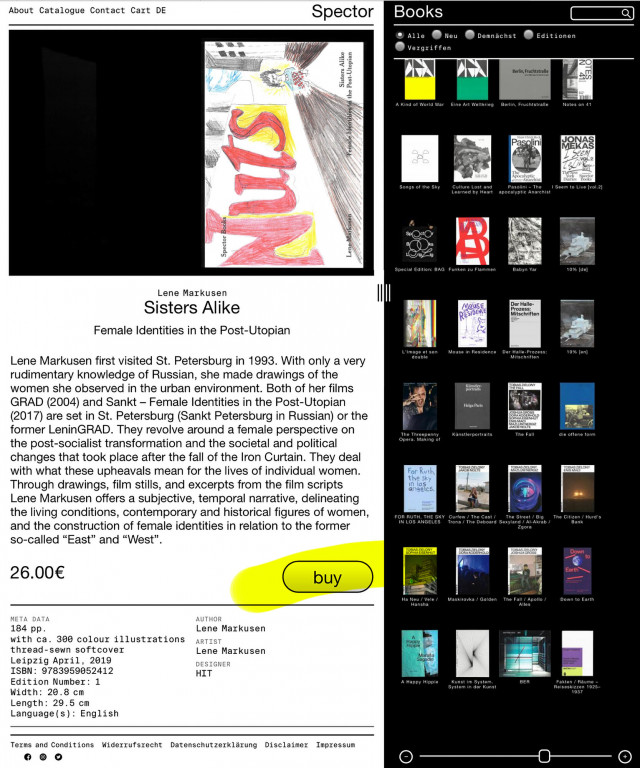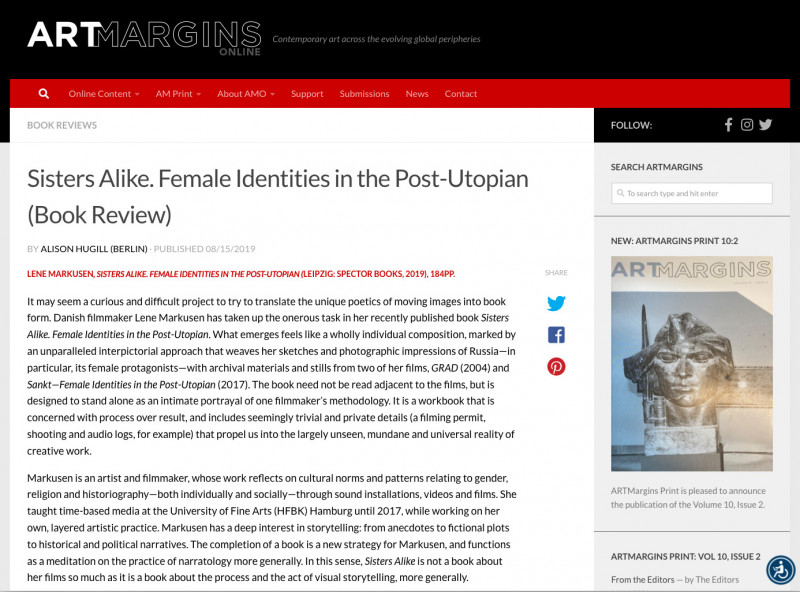Sisters Alike. Female Identities in the Post-Utopian
Artist's book, Germany, 2019
184 pp., Spector BooksLene Markusen first visited St. Petersburg in 1993. With only a very rudimentary knowledge of Russian, she made drawings of the women she observed in the urban environment. Both of her films GRAD (2004) and Sankt – Female Identities in the Post-Utopian (2017) are set in St. Petersburg (Sankt Petersburg in Russian) or the former LeninGRAD. They revolve around a female perspective on the post-socialist transformation and the societal and political changes that took place after the fall of the Iron Curtain. They deal with what these upheavals mean for the lives of individual women. Through drawings, film stills, and excerpts from the film scripts Lene Markusen offers a subjective, temporal narrative, delineating the living conditions, contemporary and historical figures of women, and the construction of female identities in relation to the former so-called ‘East’ and ‘West.’
Concept: Lene Markusen and HIT
Graphic design: HIT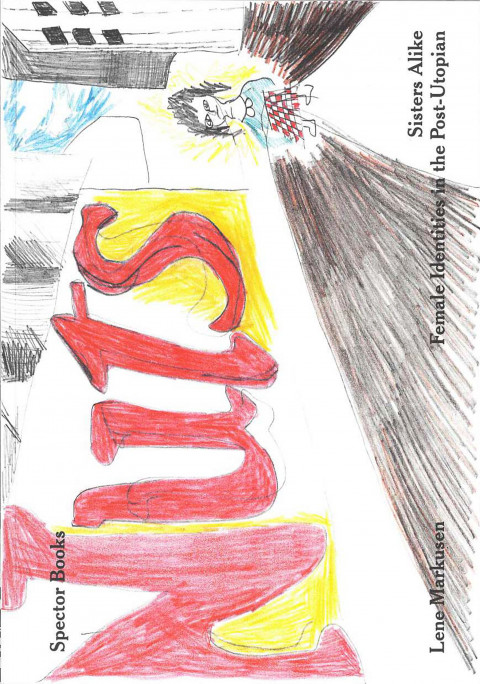

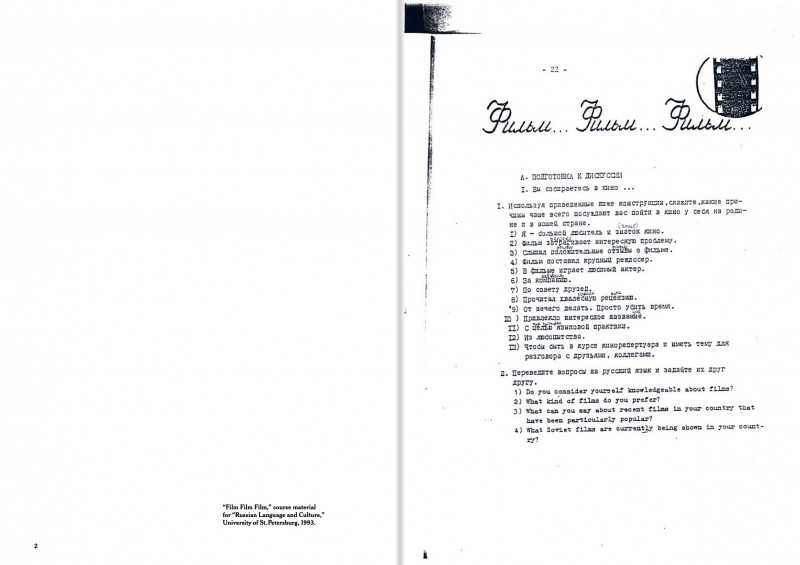
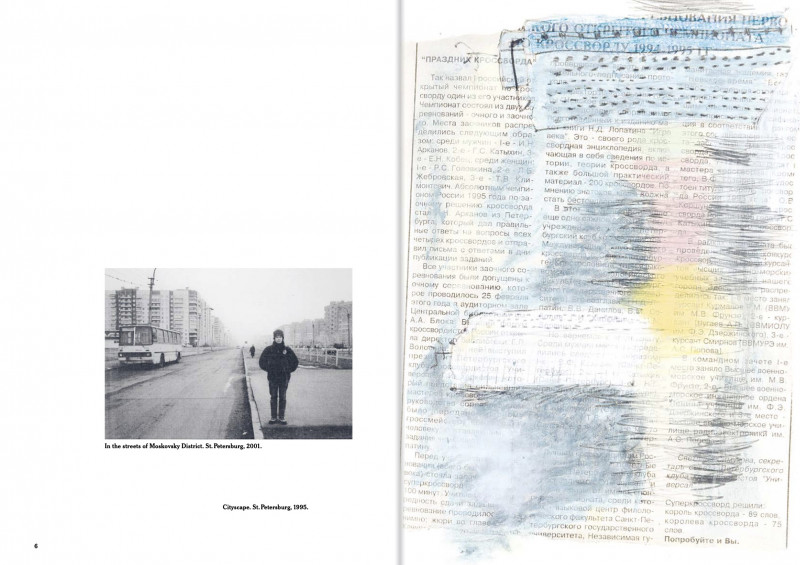
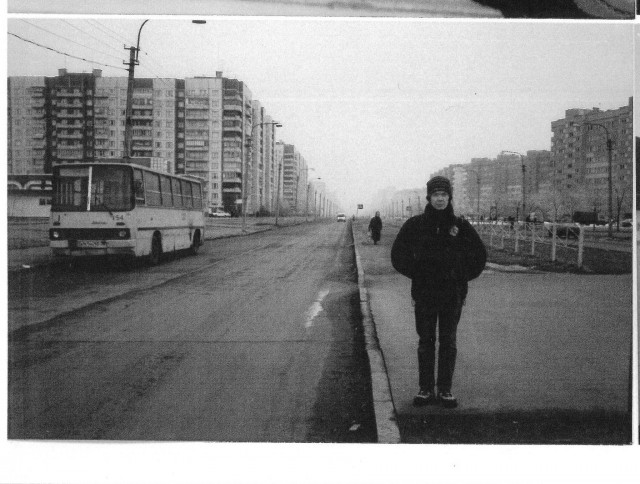
In the streets of Moskovsky District. St. Petersburg, 2001.
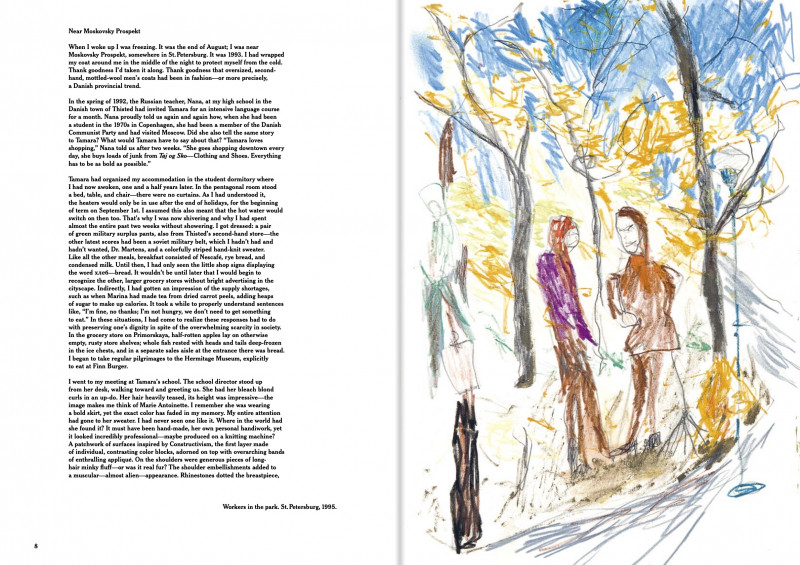

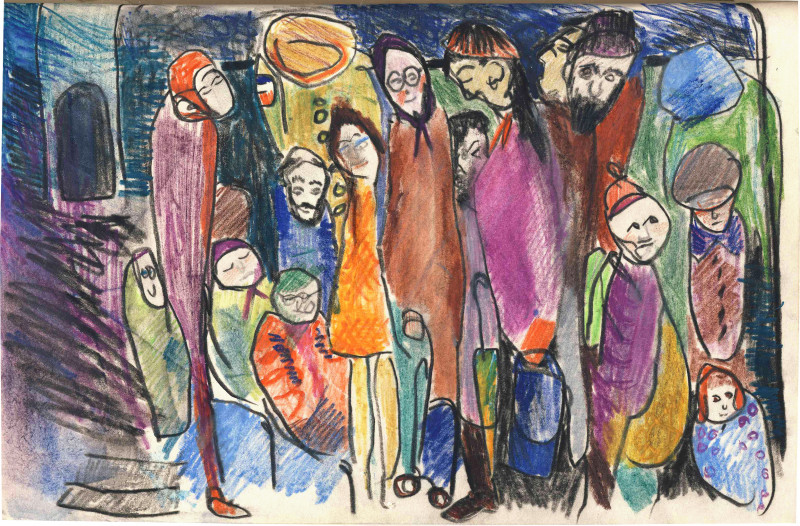
In the trolley bus. St. Petersburg, 1995.
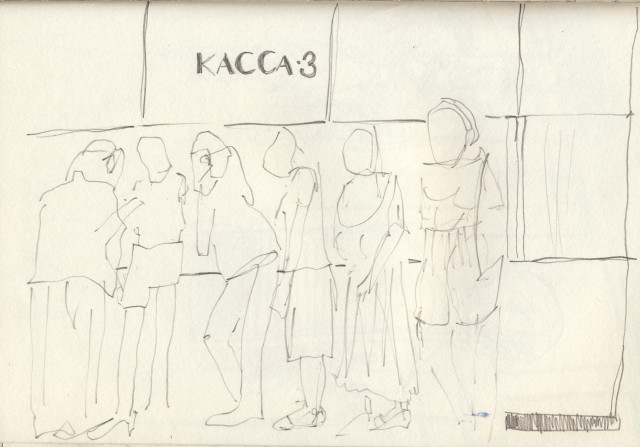
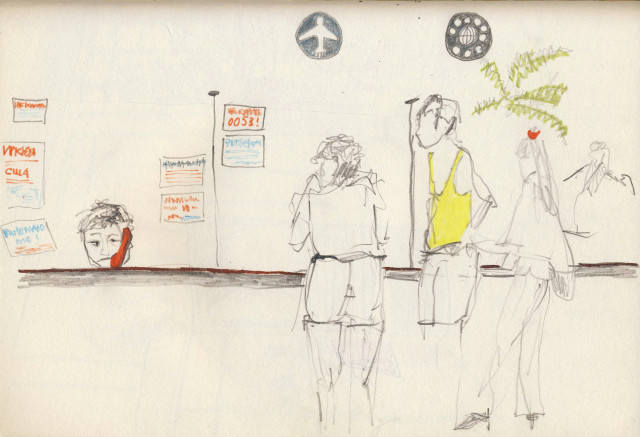
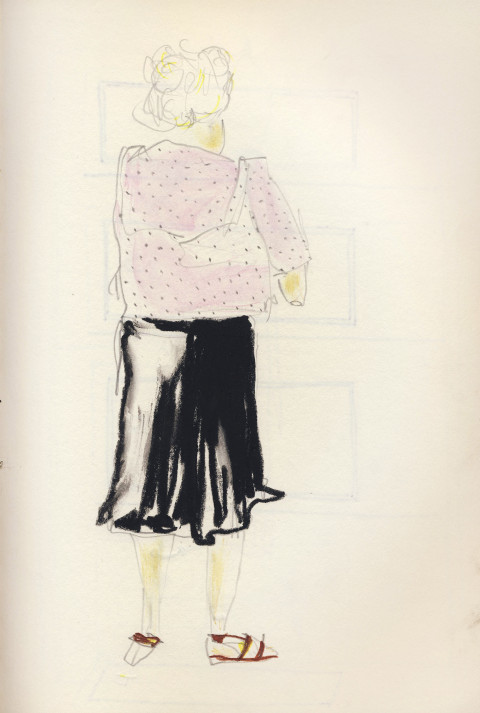
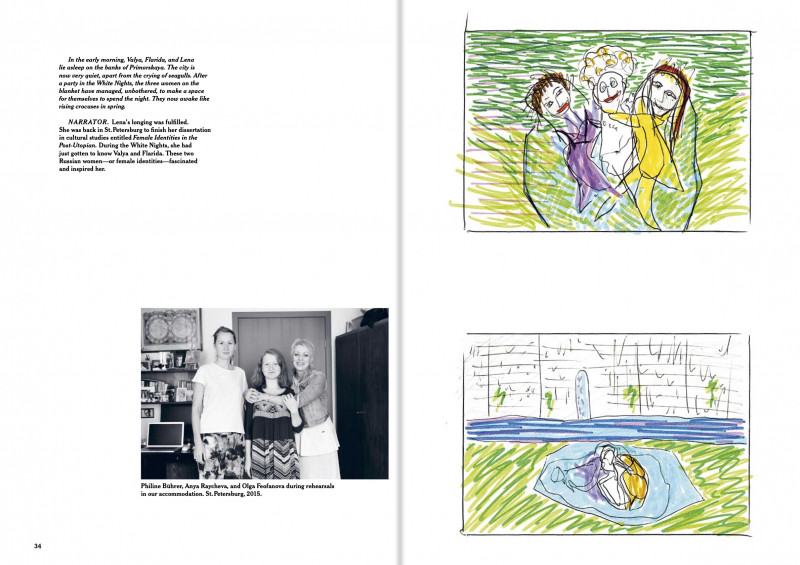
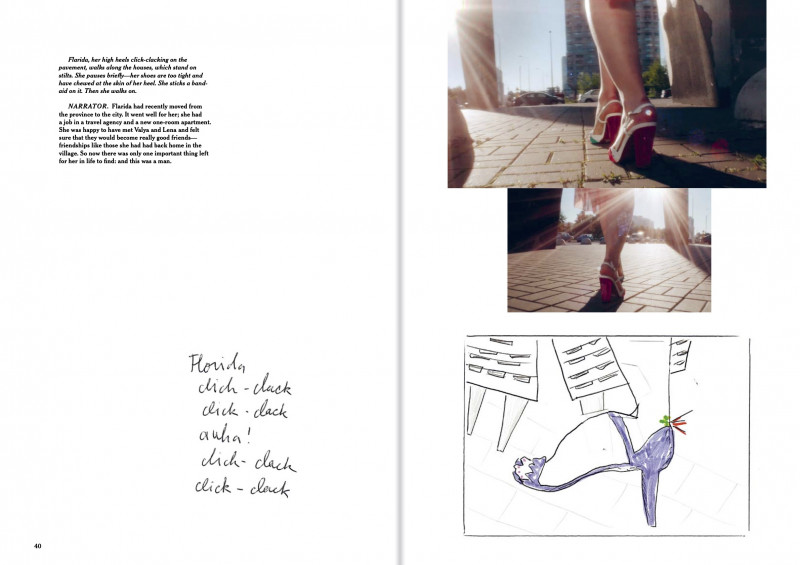
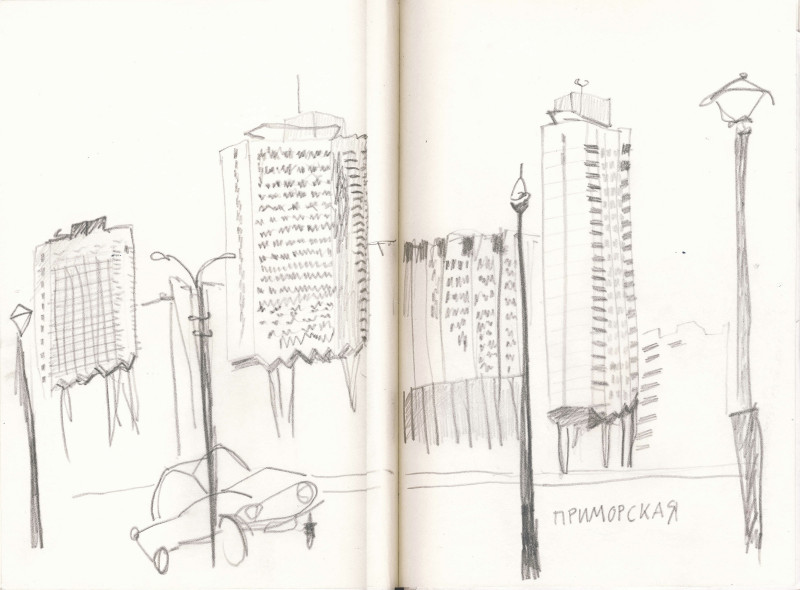
Primorskaya, St. Petersburg, 1996.
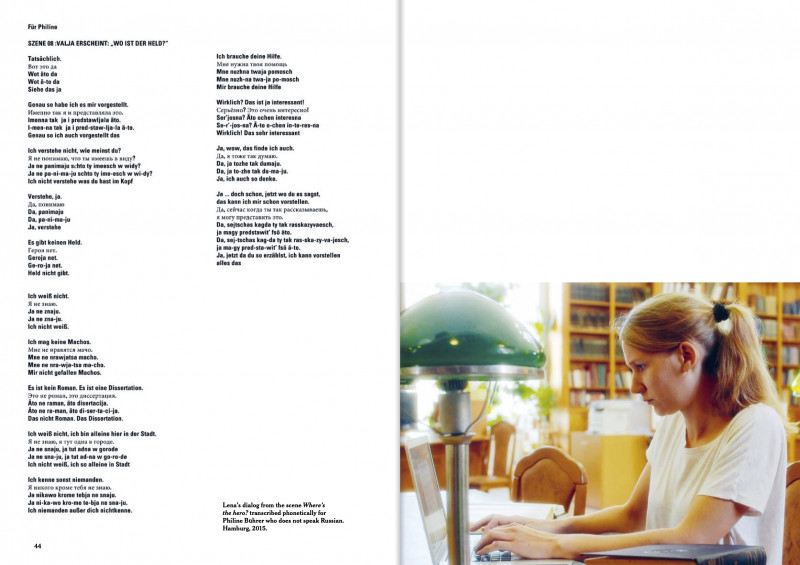
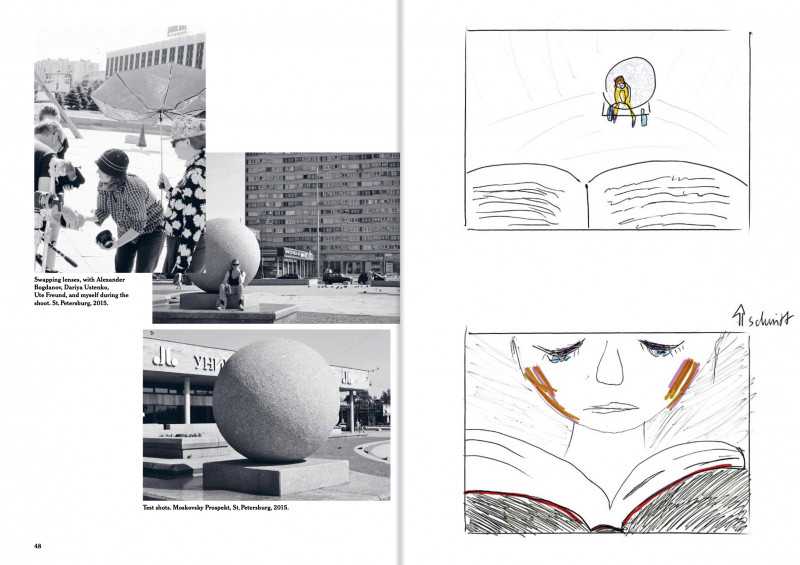
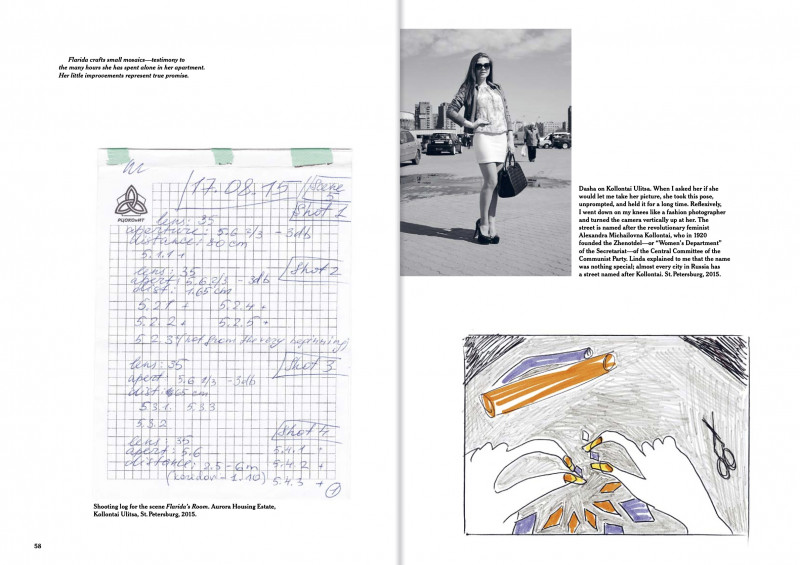
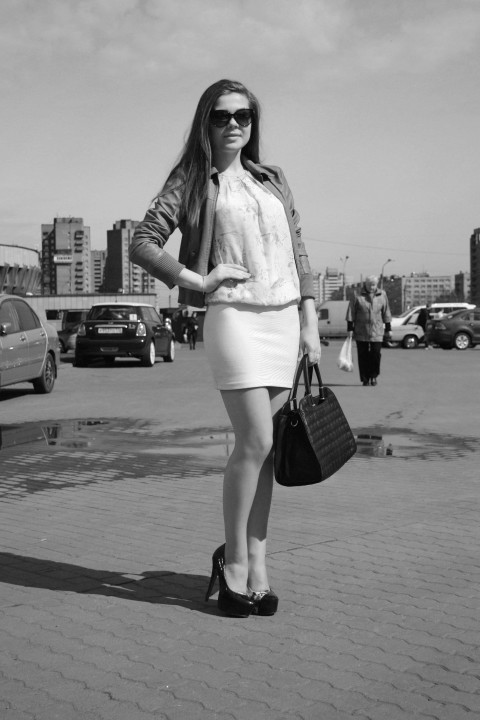
Dasha on Kollontai Ulitsa. When I asked her if she would let me take her picture, she took this pose, unprompted, and held it for a long time. Reflexively, I went down on my knees like a fashion photographer and turned the camera vertically up at her. The street is named after the revolutionary feminist Alexandra Michailovna Kollontai, who in 1920 founded the Zhenotdel—or “Women’s Department” of the Secretariat—of the Central Committee of the Communist Party. Linda explained to me that the name was nothing special; almost every city in Russia has a street named after Kollontai. St. Petersburg, 2015.
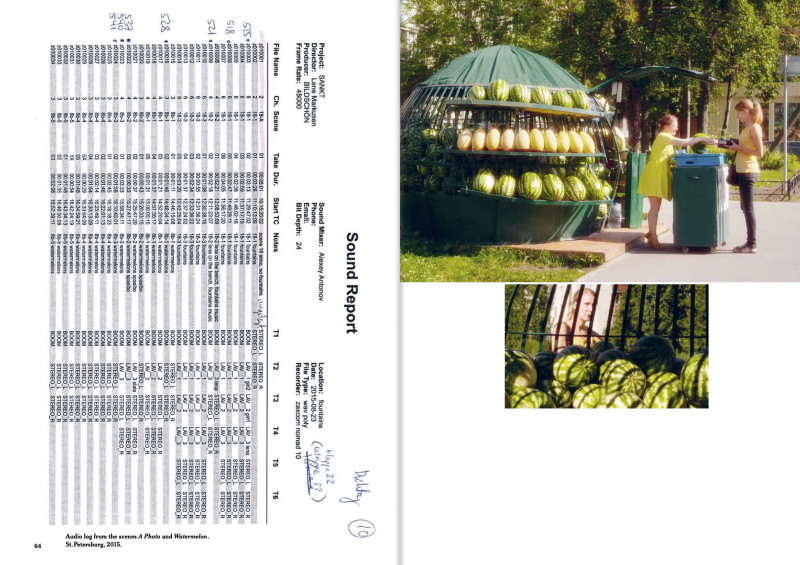
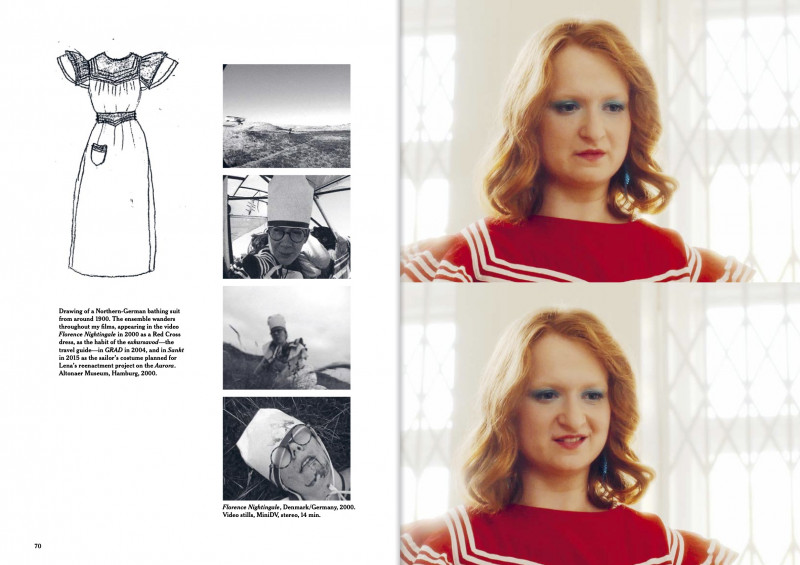
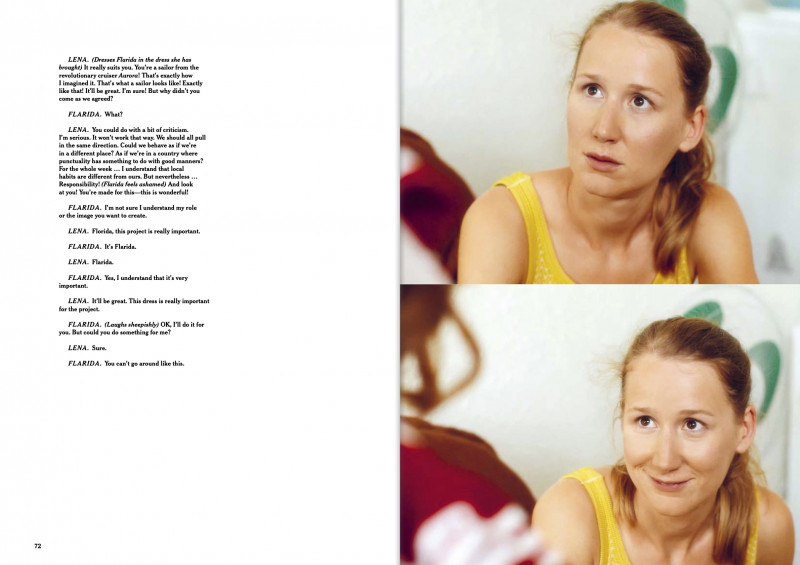
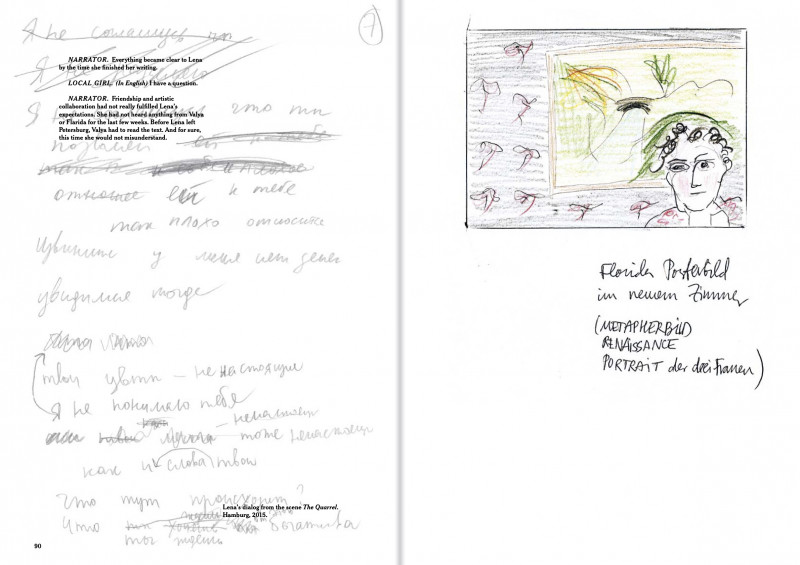
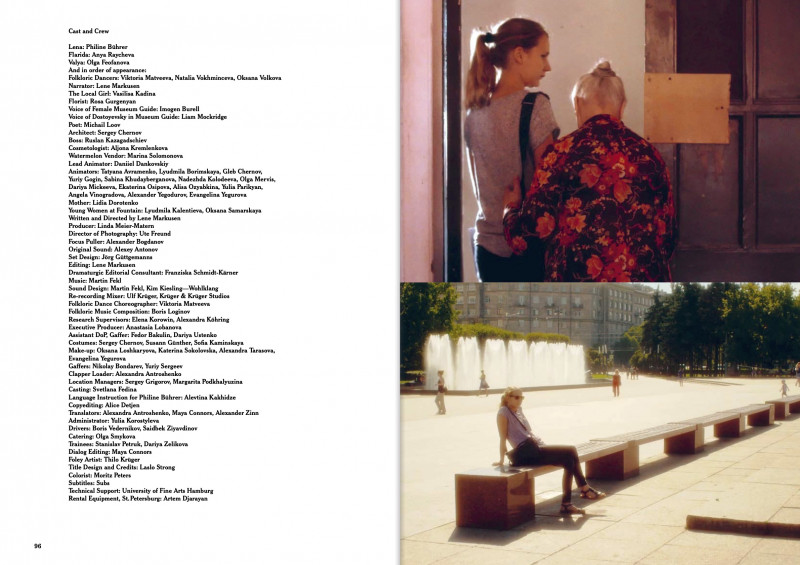
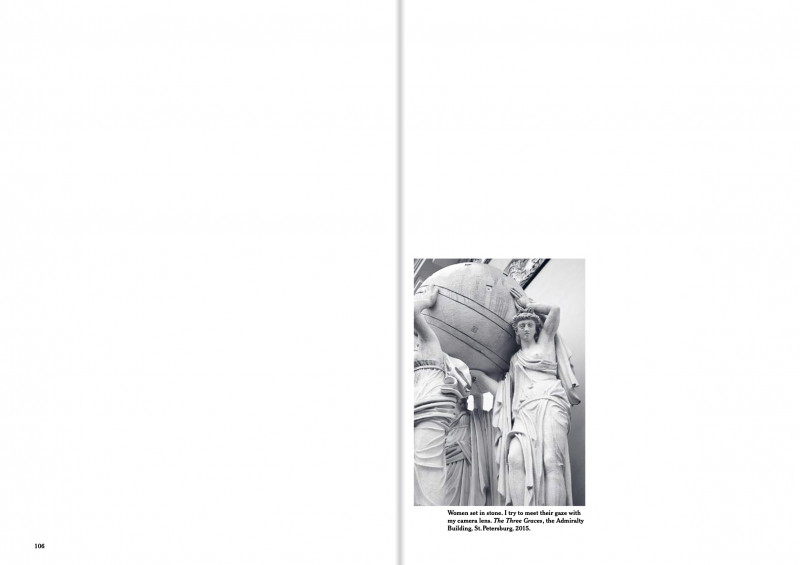
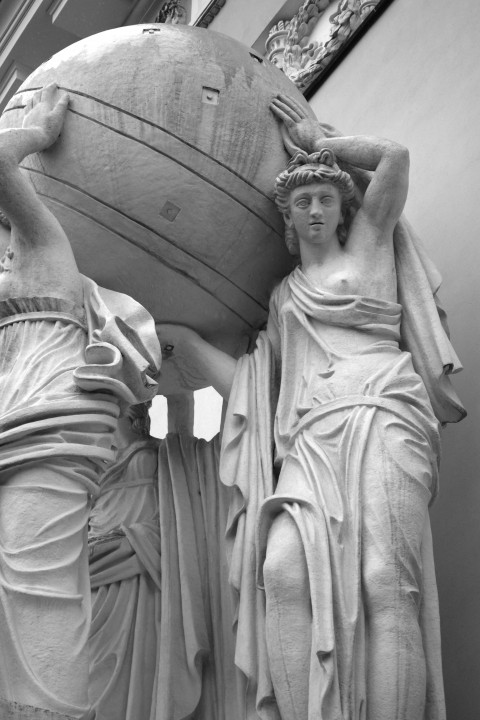
Women set in stone. I try to meet their gaze with my camera lens. The Three Graces, the Admiralty Building, St. Petersburg, 2015.
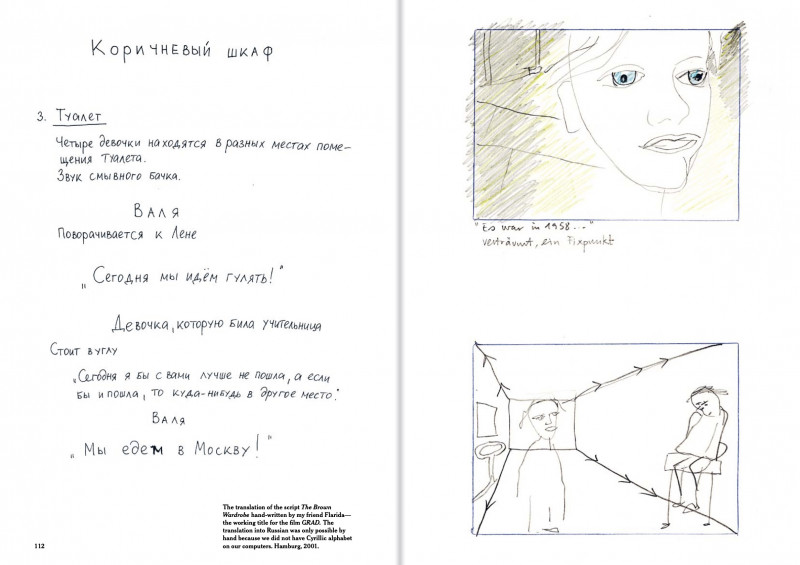

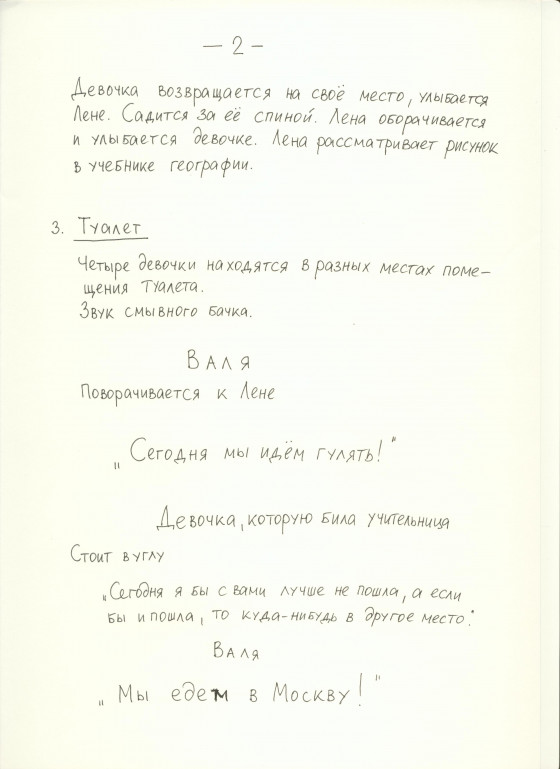
The translation of the script The Brown Wardrobe hand-written by my friend Flarida— the working title for the film GRAD. The translation into Russian was only possible by hand because we did not have Cyrillic alphabet on our computers. Hamburg, 2001.
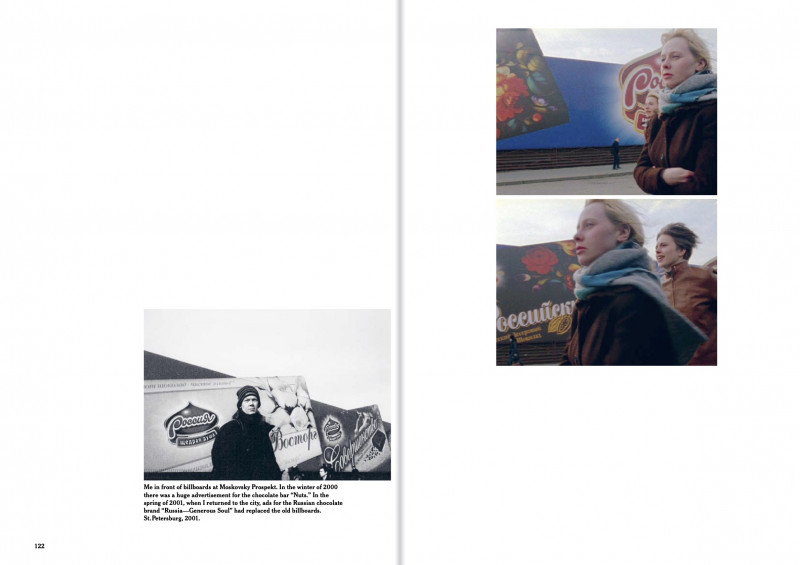

Me in front of billboards at Moskovsky Prospekt. In the winter of 2000 there was a huge advertisement for the chocolate bar “Nuts.” In the spring of 2001, when I returned to the city, ads for the Russian chocolate brand “Russia—Generous Soul” had replaced the old billboards. St. Petersburg, 2001.
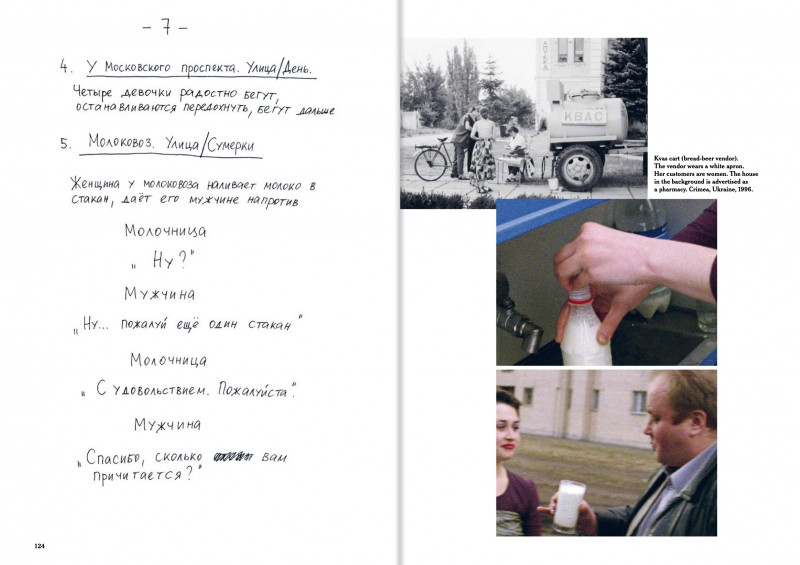
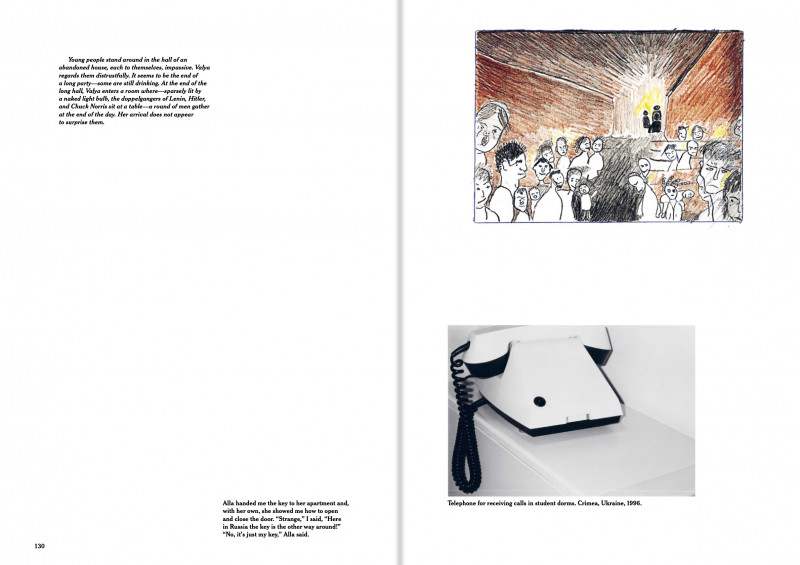
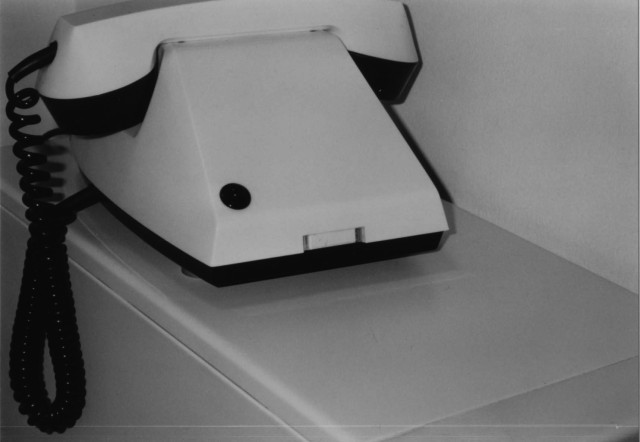
Telephone for receiving calls in student dorms. Crimea, Ukraine, 1996.
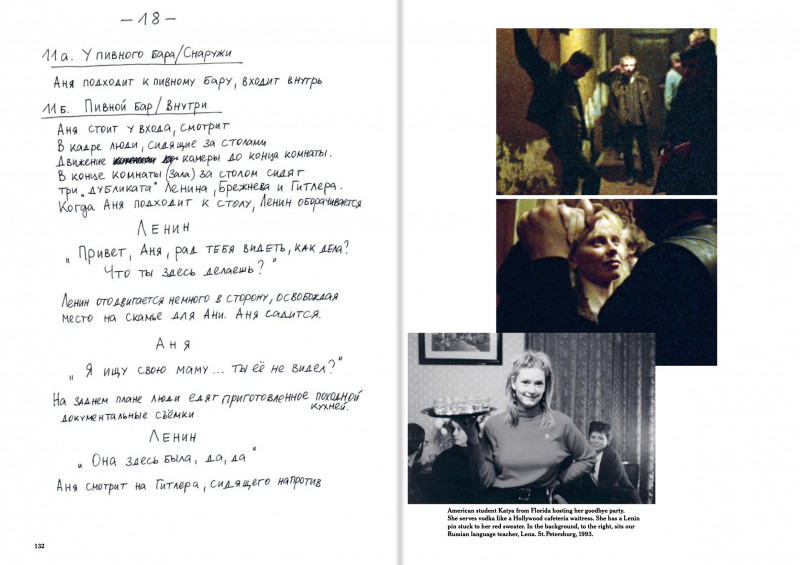

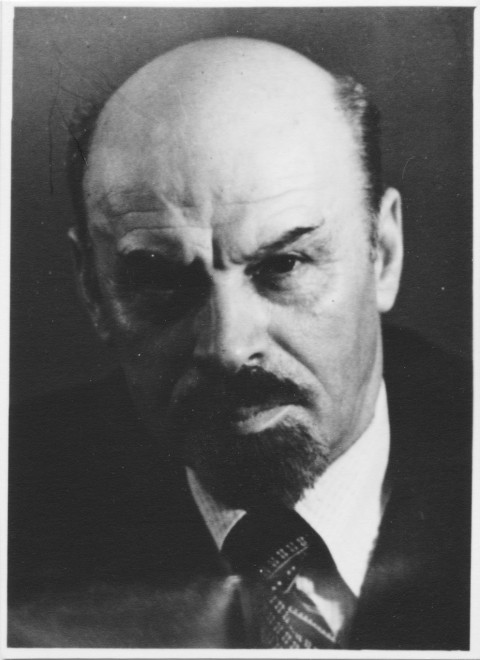
Headshot of Alexander Gudkov.

Dearest Lenochka!
To the most talented director! As a sign of my sincere admiration and deepest regard, love, and gratitude. To beauty, talent, and a fine soul, and with wishes
of health, happiness, love, success, and joy!
With love
Your
V. Ul‘ianov (Ленин)
May 2nd, 2001.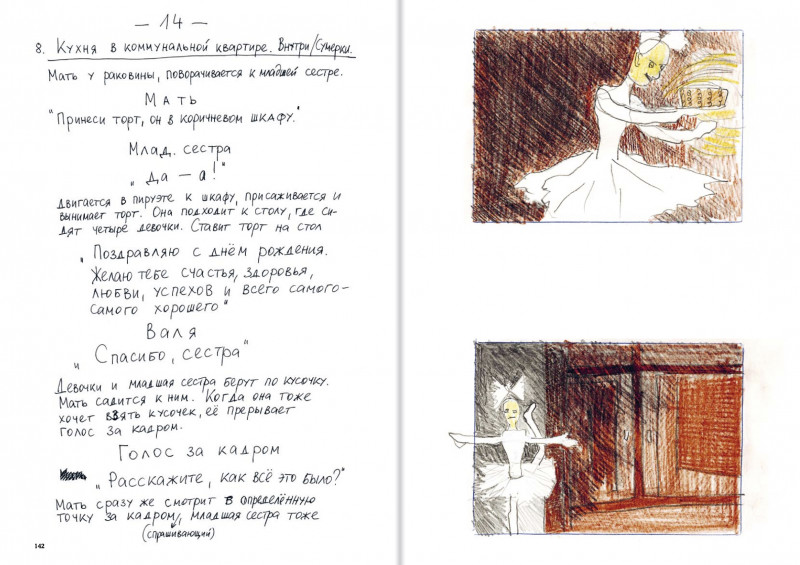


In the kitchen of the communal apartment on Sennaya Ploshchad. St. Petersburg, 2001.
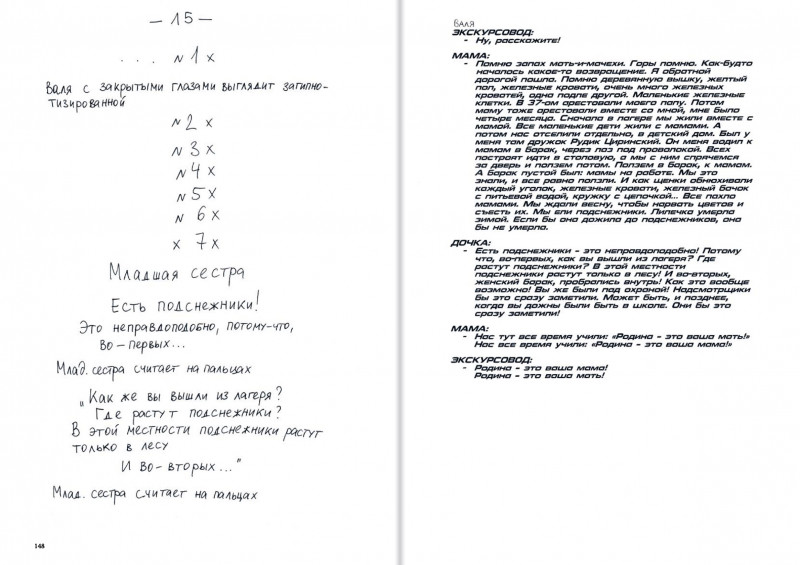
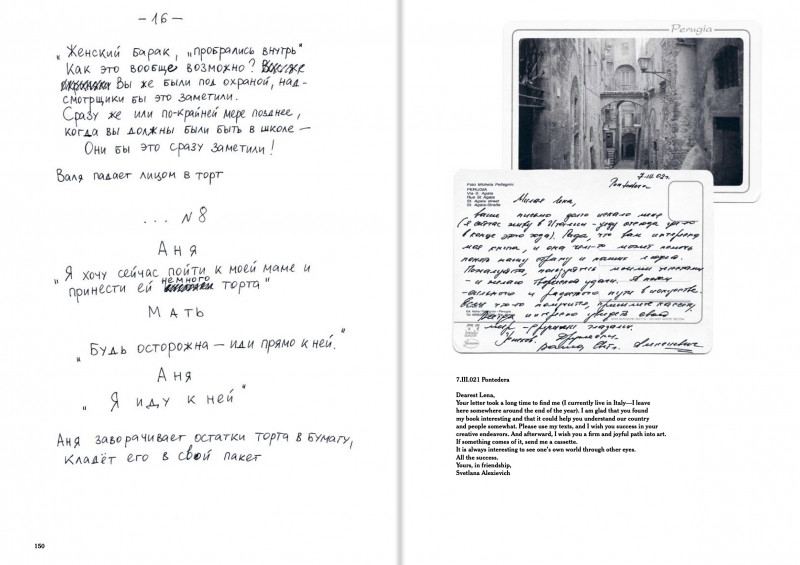
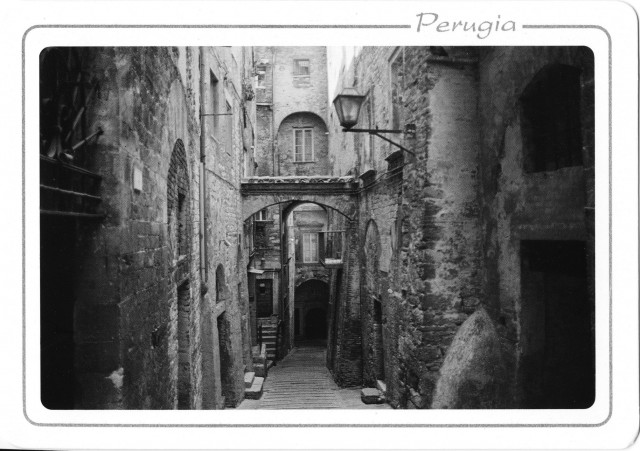
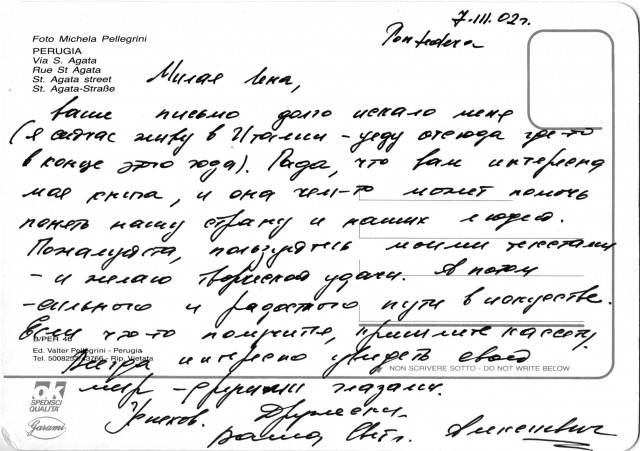
7.III.02 Pontedera
Dearest Lena,
Your letter took a long time to find me (I currently live in Italy—I leave here somewhere around the end of the year). I am glad that you found my book interesting and that it could help you understand our country and people somewhat. Please use my texts, and I wish you success in your creative endeavors. And afterward, I wish you a firm and joyful path into art. If something comes of it, send me a cassette. It is always interesting to see one’s own world through other eyes.
All the success.
Yours, in friendship,
Svetlana Alexievich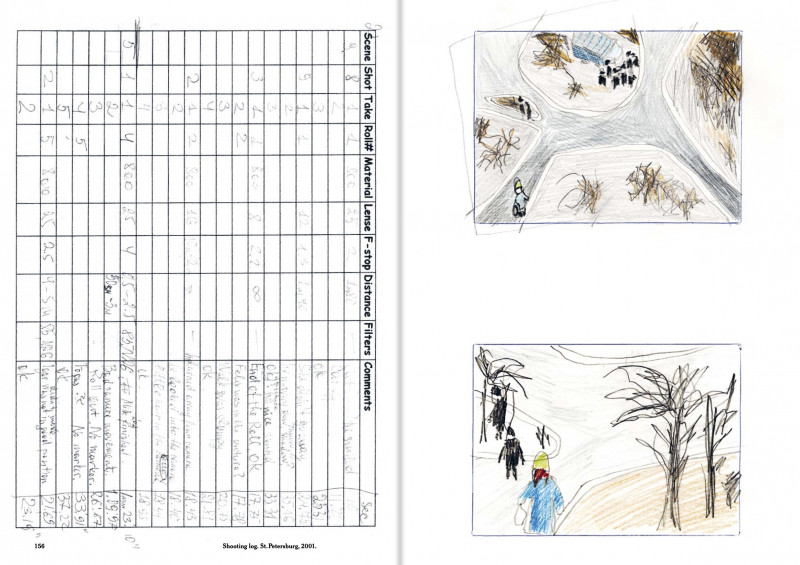
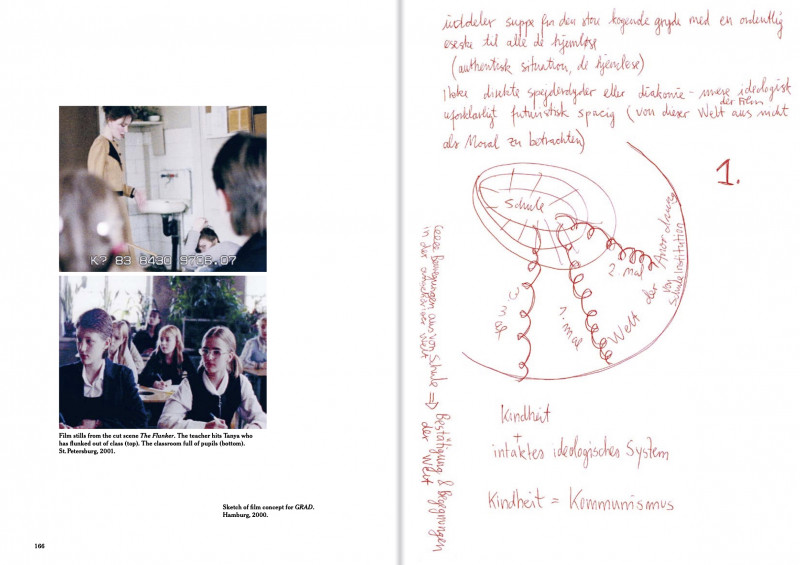
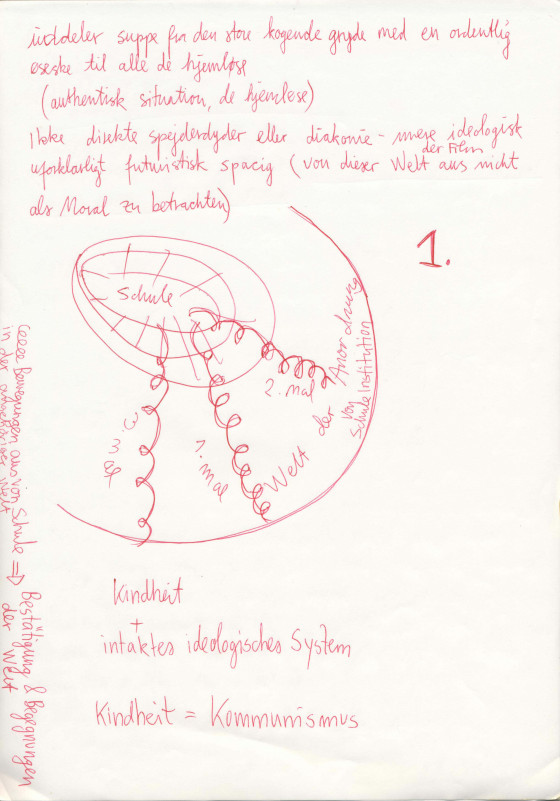
Sketch of film concept for GRAD. Hamburg, 2000.
